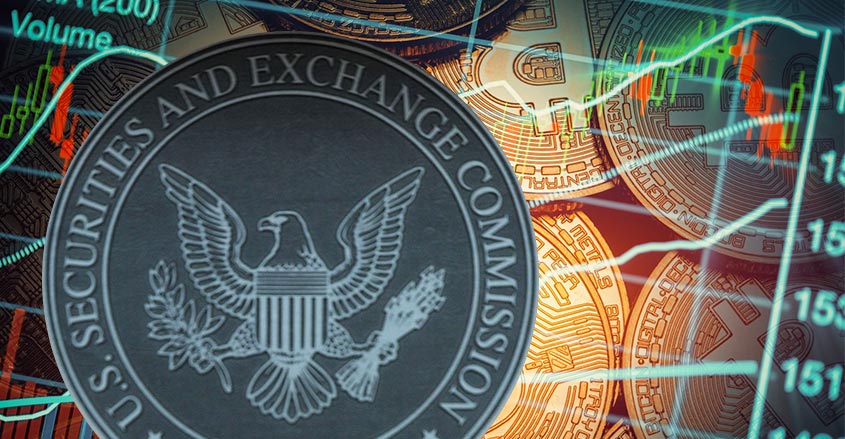The U.S. government agency charged with ensuring market integrity and protecting retail investors from fraud and abuse expressed skepticism over whether Wall Street firms could ever issue a cryptocurrency exchange-traded fund (ETF) that would satisfy securities laws.
A crypto ETF would greatly expand the pool of potential investors, creating liquidity that would make cryptocurrencies more stable.
However, the current highly volatile and illiquid nature of the cryptocurrency markets means that ETF and mutual funds tied to Bitcoin present too much risk to investors, according to the U.S. Securities and Exchange Commission (SEC).
The agency also has frowned on initial coin offerings (ICOs), characterizing these transactions as sales of securities that fall under the agency’s investor protection provisions.
Jay Clayton, the SEC’s new chairman, has taken a firm stance against products and transactions that could harm retail investors.
As an expression of the new chairman’s posture, the agency asked several firms recently to withdraw their applications to launch ETFs pegged to Bitcoin futures.
One of the principal concerns of the SEC is that mutual funds and ETFs must price their constituent securities at the close of each trading day.
Because the digital coin markets have exhibited wild price swings across exchanges worldwide, the agency expressed concern that many investors would not be able to exit the funds in a timely manner.
“Until the questions identified above can be addressed satisfactorily, we do not believe that it is appropriate for fund sponsors to initiate registration of funds that intend to invest substantially in cryptocurrency and related products,” wrote Dalia Blass, the SEC’s director of investment management.
“Additionally, the SEC is concerned about the integrity of the cryptocurrency markets and whether recent indications bode ill for the future in terms of establishing a price of Bitcoin that is reflective of supply and demand in an environment that is fair and transparent.”
Fraud and abuse
The agency’s recent rejection of applications to sell ETFs tied to cryptocurrency markets is consistent with its position in 2017.
Last year, the SEC denied the application by the Bitcoin-linked ETF SolidX for listing on the New York Stock Exchange.
Last March, the agency also denied a similar request from Bats ETF BZX Exchange submitted by investors Cameron and Tyler Winklevoss. These denials are indicative of the agency’s view that the cryptocurrency markets, as currently structured, lack adequate safeguards for preventing fraud and abuse.
Currently, there is a dearth of safeguards for U.S. investors because many of the crypto markets and transactions occur offshore or in different countries.
For regulators, this is problematic because many of the transaction-related activities and participants are beyond the reach of its jurisdiction.
Until there is more transparency, consistent surveillance and market regulation worldwide, the SEC is likely to continue to view cryptocurrency ETFs with a jaundiced eye.


